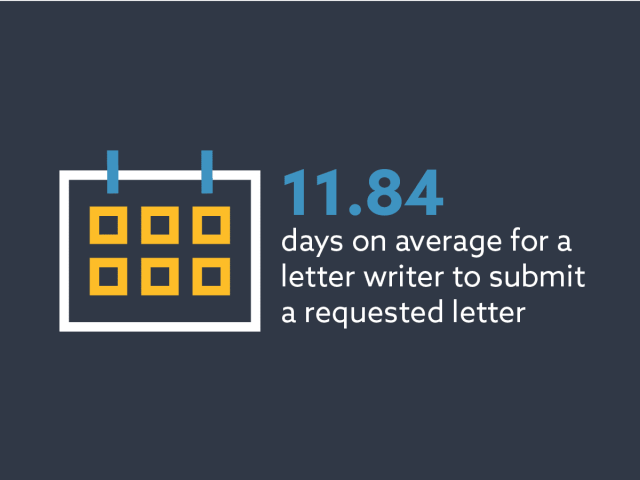Whether you’re a newly minted Ph.D. applying for your first-ever academic position or you’re looking for new opportunities after more than a decade in higher education, the faculty application process can be overwhelming. From the number of applications you submit to the amount of material included in each application packet, it’s easy to start working on autopilot and submit the same template for each job listing.
But by using some best practices—and doing a little prep work beforehand—you can strengthen your faculty applications so that they’re self-assured, noteworthy, and well curated. Faculty job applications are your opportunity to make the case that not only will you be a valuable colleague, but you are also already putting your mark on the field. Follow these tips to make that case with confidence.
Prepare All Your Materials
The academic recruitment process often moves slowly, but you need to respond to job listings as quickly as possible. Save yourself some future stress and get organized on the front end: Keep different versions of your CV and cover letters in one place, make sure you have an up-to-date list of notable accomplishments that you can include in application packets, and have your requests for letters of recommendation ready to send.
Faculty applications include a lot of moving pieces; using tools like Interfolio’s Dossier allows you to store and prepare all your materials in one place so that you’re ready to send polished, compelling, and comprehensive applications at a moment’s notice.
Keep Your CV Focused and Short
It’s natural to want to include all of your credentials in your CV—and if you’re a young professional seeking a first-time position, you may not know which accomplishments should make the cut. While it’s wise to have a comprehensive CV on hand, you’ll want to send shorter, more focused versions in your applications that include only the accomplishments and experience most relevant to the position you’re seeking.
Prioritize your highest-prestige accomplishments, then consider other credentials for their relevance to the position you’re applying for. For example, if you spent your first couple of years in graduate school writing book reviews and encyclopedia articles, you may not need to include that experience on your CV unless it clearly illustrates subject matter expertise or a skill you want to showcase for a specific job opportunity.
Remember that academic CVs can easily be 10 pages or more: Save the hiring committee’s time, and show you understand the specific needs for an open position, by editing your CV down to the accomplishments you believe the hiring committee will care about most.
Position Yourself as a Well-Rounded Colleague
You’re more than the accomplishments on your CV. Institutions are looking to hire faculty with a certain type of experience, but they also want to recruit talent that will contribute holistically to the prestige and vitality of the department, school, or university.
To put your best foot forward, look for opportunities to showcase the following:
- Teaching effectiveness and student engagement
- Collaborative experience within your department, college/school, and community
- Commitment to diversity, equity, and inclusion
- Professional development and continuous improvement
Packaging a well-rounded faculty job application will show hiring managers not only what you have already accomplished but also what you can contribute to their institution in the future.
Give Your Cover Letter Some Life
If this is your first time applying to a faculty position, you may feel overwhelmed by the sheer number of documents you need to write and assemble—and if you’re already a seasoned faculty member, you may simply be exhausted. But your cover letter is your opportunity to communicate what your CV and samples can’t. Are you passionate about your work? Are you enthusiastic about your line of research? Take some time to convey this in writing.
The people reviewing your application will likely be disciplinary colleagues, so feel free to use some specialized language, but don’t hamper your cover letter with too much jargon. Instead, write as though you are talking directly to the hiring committee, telling them what it is about this position that excites you. And remember, for as many cover letters as you’ve written, the people on the other end have read even more. Keep it short, and they’ll thank you.
Think Strategically About Letters of Recommendation
Letters of recommendation are critical, and it’s important that they come from the right people. Consider the context of the job you’re applying for when you decide whom to approach for a letter. Select someone who can speak to your skills or accomplishments in the specific area you’re pursuing, and whose opinion will carry weight with the hiring committee.
Faculty who are more advanced in their career will be able to seek interdisciplinary recommendations from a wide range of colleagues, but if you are fresh from your studies, you’ll likely seek a letter from your adviser or a member of your dissertation committee. In all cases, be sure your recommender knows what to say. Ask them to include certain information, from details about your academic performance to a character reference, that will make your application shine.
From asking for letters to collecting them and sending them on, it can be difficult to manage the letter of recommendation process in a short timeline. For a seamless recommendation process, use Interfolio’s online academic dossier service, which enables you to request, store, and send letters confidentially and with ease from one central location.
Build Your Dossier With Interfolio.
Advance With Confidence.
Applying for academic programs or positions requires many artifacts. Put your best foot forward with Interfolio.
Start building your dossier for free today.














